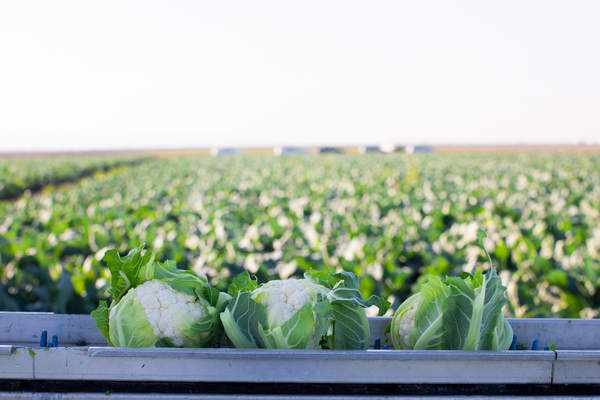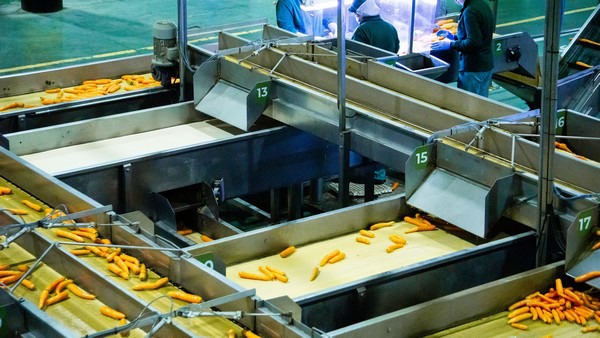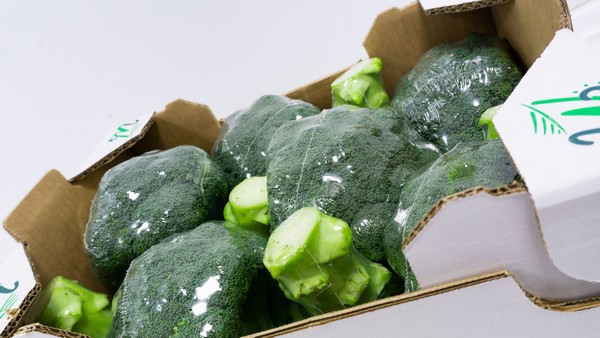Last December, the rains caused the flooding of the Ebro River and its tributaries, destroying more than 4,300 agricultural hectares in Navarre, La Rioja and Zaragoza, with a significant part of the damage affecting broccoli and cauliflower, according to Agroseguro estimates. However, the persistent absence of rainfall in southern Spain is also wreaking havoc on its agricultural production.
"This year we are experiencing a very difficult situation because of the dry weather. Our cauliflower production in Las Marismas de Lebrija is going to amount to about 2,550 million pieces, and that of broccoli to about 2-2.5 million kilos, which is about half of what we produced of both vegetables last year," says Juan Sanchez, president of this Seville-based cooperative located in the Lower Guadalquivir. "But the problem is not only the lack of water, but also that we don't know if there is going to be any, and if there is, how much we will have, and this is not only having an impact on the plants that we already planted."

"We should already be planting tomato plants in seedbeds, so that on March 20 we could start transplanting the first 500 hectares of industrial tomatoes out of the 2,300-2,400 hectares that we plant, but given this uncertainty about the supply of water for irrigation, we have not yet started," says Juan. "But the most serious issue is that in Las Marismas de Lebrija we employ 180 people, and in this extreme situation caused by the lack of water we cannot even ask for temporary lay-off plans (ERTE), since the drought decree, which should have been published in December, has yet to be published."

In addition to this drop in the production, there has been an unprecedented rise in the price of inputs, and producers are still unable to pass this on into the prices of their produce, says Juan Sanchez. "The demand is currently peaking. In December, the demand for brassicas always fall a little, and with January the demand is reactivated, but this year prices have fallen even below last year's. During the whole month of January we have been selling cauliflowers at 30 cents per head, and broccoli at about 40 cents per kilo, which includes the cost of packaging. For the vegetables alone we receive about 28 cents per kilo; however, when I go to the supermarket, I see that cauliflower is sold for 2.5 Euro per kilo and broccoli for between 1.5 and 2 Euro."

"There are products that cost more to harvest than to grade them"
The past water crises in the region of Andalusia have shown that dry weather is a temporary phenomenon that, although cyclical, happens on a temporary basis; however, the crisis caused by the lack of profitability in agriculture has been aggravated this year by the lack of water, and it has already been described on numerous occasions as a structural factor. Agriculture is a strategic economic and social sector in Andalusia, a source of employment and wealth in the region and a reason for the population not to abandon the rural world. And while obvious, it is also worth mentioning that agriculture is the basic source of our food, which makes it essential for our health and life," says Juan.

Juan Sánchez, president of Las Marismas de Lebrija S.C.A.
"Agricultural producers and the agribusiness shouldn't be endangered. I thought that during the pandemic, when we were called "essential", we were going to learn to give agriculture the value it really has. But we are back to the same old situation: big chains still have the power. They offer us prices for our products which they know we may refuse on the first day, but we'll end up accepting on the third, since we are dealing with perishable products. And in their eagerness to make more money, they prefer to bring products from Asia, Africa, or any other country, because they can buy them cheaper. Unfortunately many times there are fruits and vegetables that cost more to harvest than to grade them."
"In the meantime, there is still consumption. People are eating increasingly healthier, choosing seasonal products and paying prices for them that might make you think that the agricultural sector should not be in the situation it really is. And no product escapes this crisis. Now the region is going to start supplying carrots, and the prices paid this year are 50% below those of last year."
"It is very difficult to make society aware of this, so on March 20, a big demonstration has been called in Madrid. With it, we hope to make our situation visible everywhere."
 For more information:
For more information:
Juan Sánchez
Las Marismas de Lebrija S.C.A.
Polig. Industrial Las Marismas
Parcela 1, 029 – BB
41740 Lebrija, Sevilla, Spain
Telf.: +34 955 97 70 11
infoweb@marismas.es
www.marismas.es
